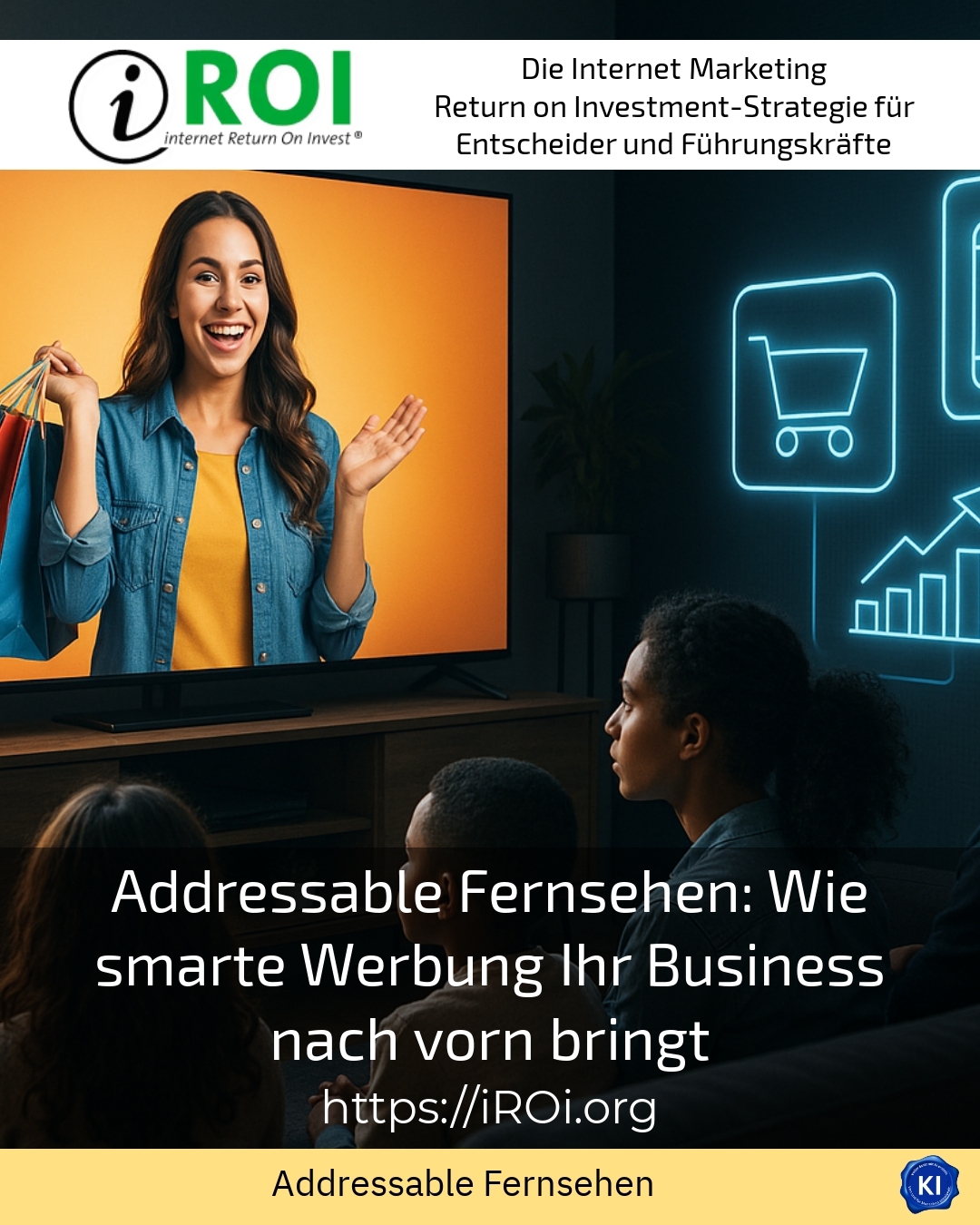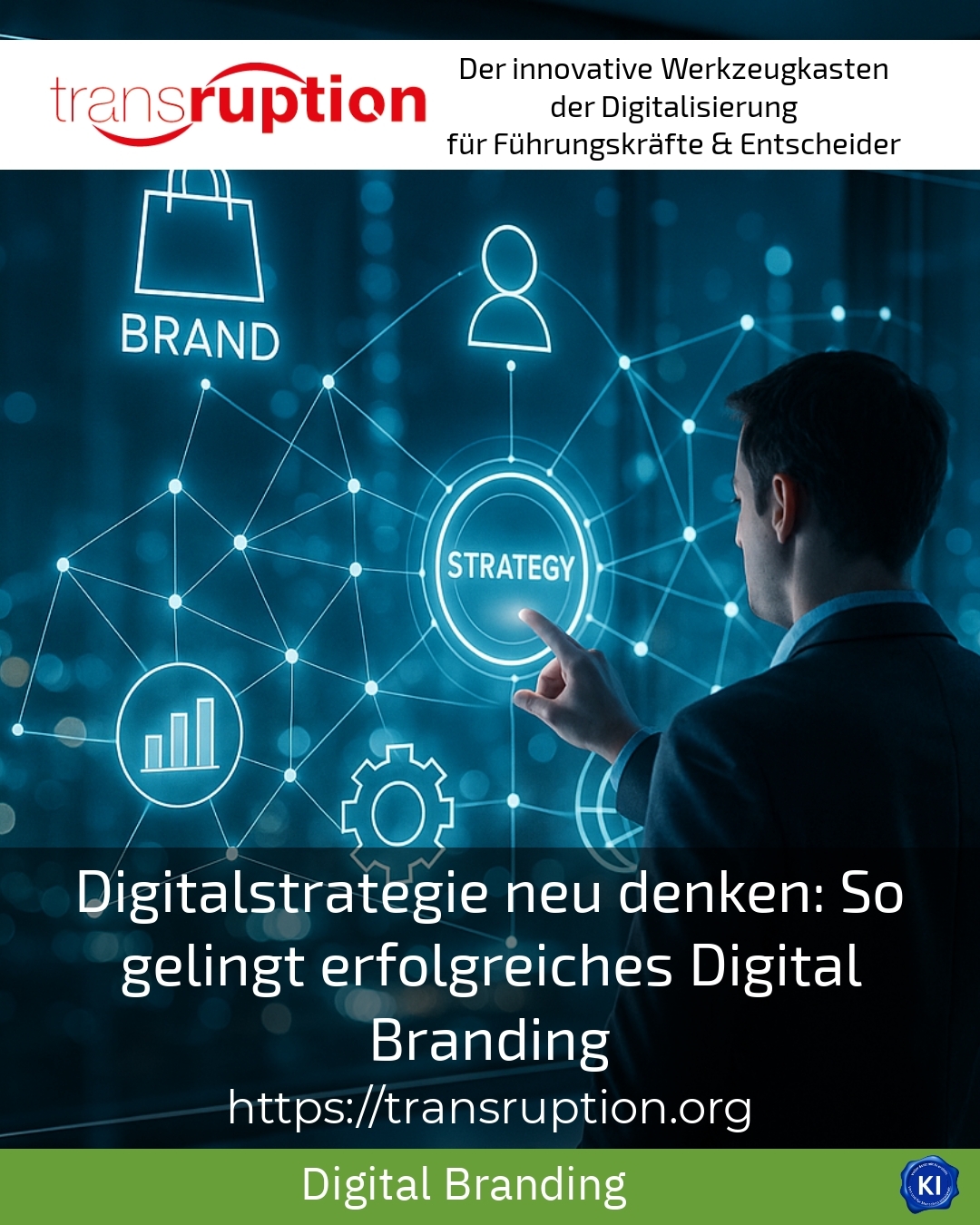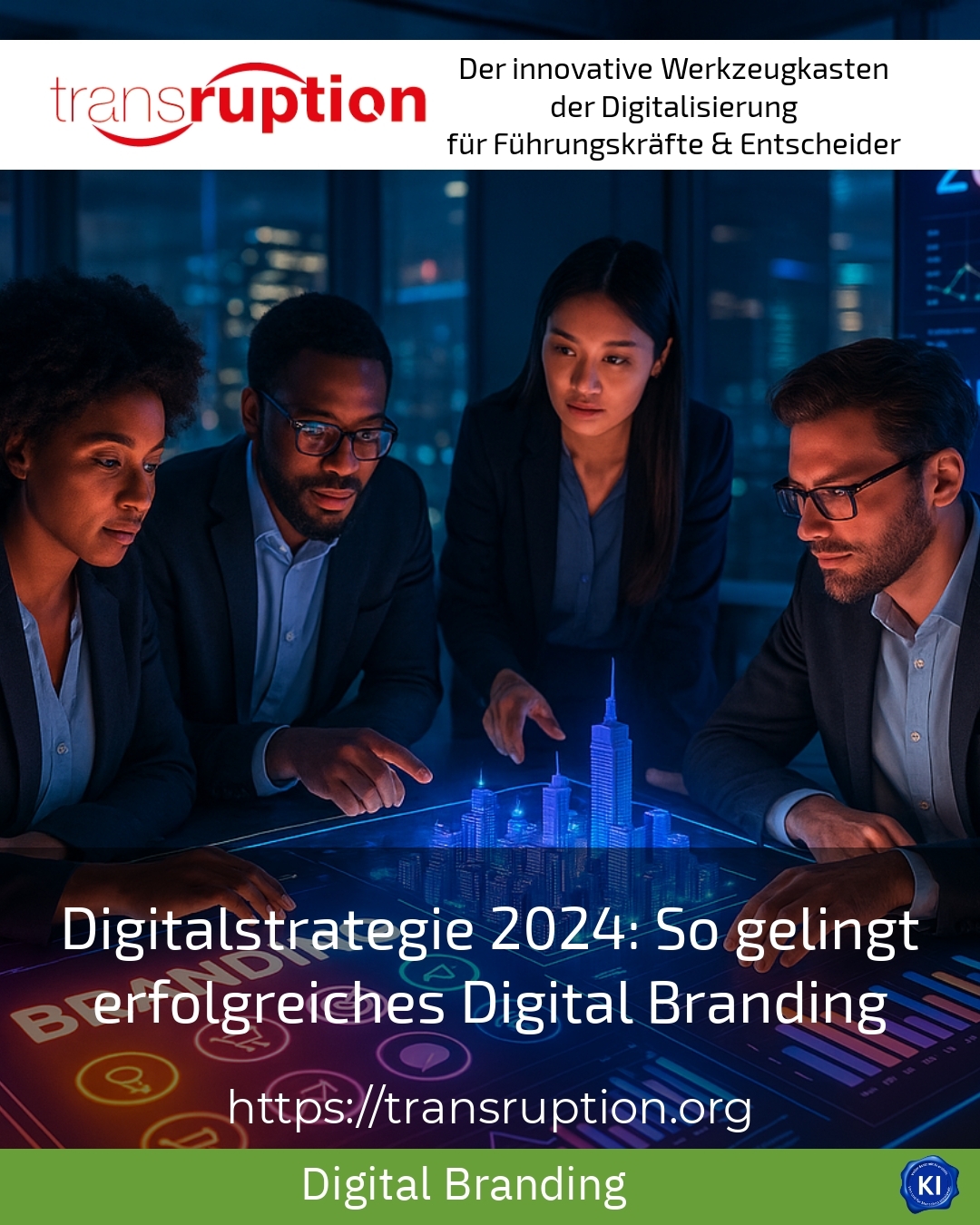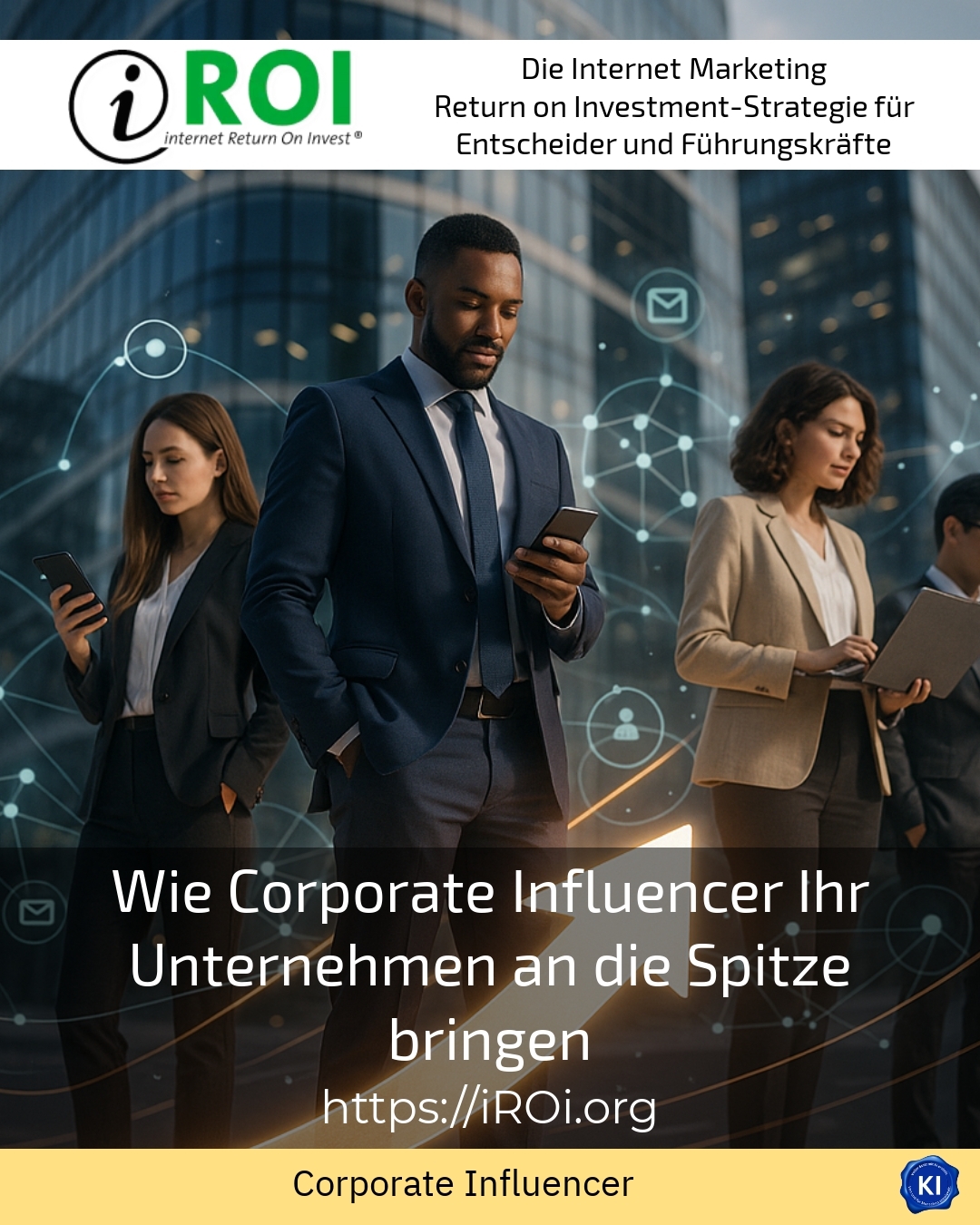Corporate influencers are employees who act as authentic brand ambassadors for their company and can thus strengthen the corporate image, build trust and increase visibility[1]. In contrast to external influencers, corporate influencers come directly from the company, know the values and culture first-hand and thus bring genuine, convincing perspectives to external communication[5]. Many companies are already using this internal source of communication to position themselves as an attractive employer and stay one step ahead of the competition[2]. iROI-Coaching also provides companies with intensive support in the development and implementation of corporate influencer projects, as their potential for employer branding, recruiting and marketing is often still underestimated.
What corporate influencers are and how they work
Corporate influencers provide real insights into everyday working life, share personal success stories and make corporate culture tangible[7]. They primarily use social networks such as LinkedIn, Instagram and Facebook, but also blogs and messenger apps. It is crucial that they do not act as traditional advertisers, but as credible ambassadors because they are part of the company themselves[3]. This means that their posts are perceived as particularly authentic and approachable.
Deutsche Telekom specifically uses employees as corporate influencers who report on their everyday work, exciting projects and teamwork on LinkedIn and Instagram[2]. This makes the company appear modern, lively and an attractive employer. Siemens takes a similar approach: Here, employees demonstrate innovative strength, sustainability and community spirit - and thus not only reach potential talent, but also strengthen identification within the team[2]. Bosch also uses corporate influencers to make complex technologies understandable for a broad audience and thus increase trust in the brand.
Advantages of the targeted use of corporate influencers
Corporate influencers can significantly improve a company's reputation because they become visible as real people and create trust[3]. They make a significant contribution to employer branding because they publicise the employer brand and attract new talent. At the same time, they motivate existing teams and promote internal loyalty because they live the corporate culture publicly and pass it on[2].
The Otto Group offers its employees targeted training to make them fit as brand ambassadors and supports them with tailor-made programmes[4]. Another example is Daimler, which has established a permanent corporate influencer programme to increase the authenticity and reach of the brand[6]. Dataport and Deutsche Post also use corporate influencers to communicate at eye level with the target group and make the brand appear human[11].
BEST PRACTICE with one customer (name hidden due to NDA contract) - Together with iROI-Coaching, the company developed a corporate influencer programme in which goals and target groups were first defined. Suitable employees were then identified, trained and provided with clear guidelines. The focus was on authentic storytelling elements, regular dialogue formats and the involvement of management. The result: the online reach increased significantly, the number of applications rose noticeably and trust in the brand grew measurably. This example shows that corporate influencers are not just a communication channel, but a strategic investment in the future.
Corporate influencers as a driving force for modern corporate communication
Those who use corporate influencers benefit from greater visibility, more attention and better brand loyalty[7]. The communication appears approachable because it comes from real people and not from anonymous company channels. This creates proximity - both to potential applicants and to customers. At the same time, the corporate image can be sustainably improved because the messages are conveyed credibly and authentically.
One particularly successful example is Deloitte, whose employee Lara Sophie Bothur is one of the best-known corporate influencers in the German-speaking world[8]. She reaches an enormous community on LinkedIn, regularly shares genuine insights and presents the company as a committed and innovative employer. DATEV also relies on a large number of internal ambassadors who are active on various platforms and thus address a broad target group[11].
How to implement it successfully: practical tips for getting started
The potential of corporate influencers is often only fully utilised through a targeted strategy. The first step is to identify employees who already have a certain reach or are particularly committed. Clear goals, target groups and messages should then be defined. It is advisable to develop a structured training programme that covers both legal aspects and the correct use of social media[6]. Guidelines and regular dialogue ensure security and continuity.
The Otto Group relies on a platform on which employees can register as corporate influencers and receive appropriate training[4]. Daimler, IKEA and Canon also offer their internal ambassadors individualised support so that they can present themselves confidently and competently[12]. It is important to give employees the freedom to ensure that their content remains authentic - this creates credibility and strengthens the impact in the long term.
Corporate influencers as a driver of authenticity and trust
Authenticity is the key success factor for corporate influencers. Companies that share real stories gain transparency and create trust. This has a positive effect on recruitment, employee loyalty and customer relationships. Corporate influencers are therefore not a trend, but an essential component of modern, dialogue-oriented corporate communication.
BEST PRACTICE with one customer (name hidden due to NDA contract) - Together with iROI-Coaching, the company implemented a monitoring system to continuously measure and adjust the impact of corporate influencers. Both quantitative key figures (reach, interactions, applications) and qualitative aspects (image, trust, employer branding) were analysed. The results show that the targeted use of corporate influencers can significantly improve brand perception. The increase in the quality of applicants and the increased loyalty of employees were particularly positive.
My analysis
Corporate influencers are a valuable tool for positioning companies on the market in the long term. They bring values and culture to life, create trust and increase visibility - in a way that no traditional advertising channel can offer[1]. Practical examples show that many companies in Germany are already implementing successful programmes and benefiting from them[2][4][6]. Companies that promote their own corporate influencers are investing in the future and strengthening identification within the team. Corporate influencers can make a decisive difference, especially in times of skills shortages and changes in the world of work.
iROI coaching actively supports companies in the development and implementation of corporate influencer projects. Many clients report that this support has given them targeted impetus, reduced uncertainty and enabled them to achieve sustainable success. Experience shows that corporate influencers are not a short-term measure, but a strategic approach that strengthens the company in the long term.
For more information and if you have any questions, please contact Contact us or read more blog posts on the topic internet Return on Investment - Marketing here.
Further links from the text above:
Corporate influencers: definition, strategy & examples [1]
Corporate influencers: definition, examples & strategy [2]
Corporate influencers: rights & obligations [3]
Corporate influencers in employer branding [4]
Corporate influencers: how the concept works [5]
Corporate influencers: best practices and examples [6]
Employees as influencers [7]
Corporate influencers: employees as brand ambassadors [8]
Corporate influencers: examples from practice [14]
















